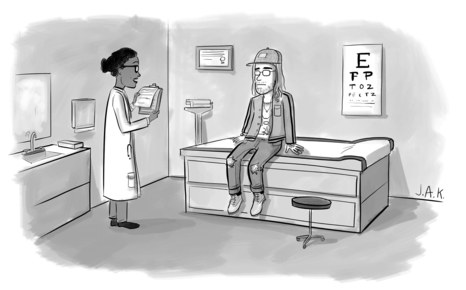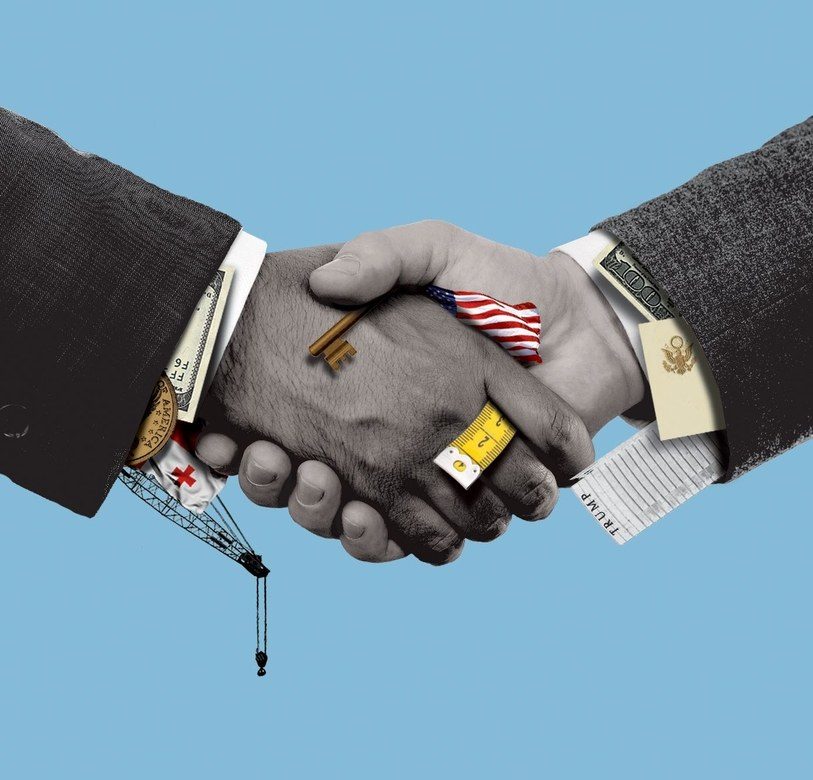This material belongs to: New Yorker.
That wasn’t the only puzzling thing about the loans. At the time that B.T.A. was lending all this money to the Silk Road Group, the bank’s deputy chairman, Yerkin Tatishev, was apparently crossing an ethical line—positioning himself to exert improper influence over some of the very Silk Road Group subsidiaries that were benefitting from the loans. B.T.A. Bank had representatives on the boards of those subsidiaries, but one representative serving on two boards, Talgat Turumbayev, was simultaneously working for Tatishev’s company, the Kusto Group, supervising mergers and acquisitions. (Turumbayev told me that serving on the boards wasn’t a conflict of interest, because it didn’t take “a lot of time.”)
I spoke with people who had knowledge about the subsidiaries. They told me that the subsidiaries were co-owned by the Silk Road Group and secret partners. The source at one subsidiary told me he suspected that Tatishev—who repeatedly participated in company meetings—was a hidden owner.
Tatishev, who is estimated by Forbes to be worth half a billion dollars, left B.T.A. Bank in 2009. He insisted to me that, while he was there, he had no personal financial involvement in the Silk Road Group. But he acknowledged that he “developed a strong friendship” with George Ramishvili, the company’s C.E.O., and “offered to advise him.” He added, “It was the right thing to do, and this is my definition of friendship.” But is it true that Tatishev merely advised the Silk Road Group? The Web site of Tatishev’s company, the Kusto Group, declares that it has been “an outstanding partner for the Silk Road Group” since 2006, noting, “Together we have successfully invested in various sectors of the Georgian economy.” Whenever I pointed out such contradictions to Tatishev, he came up with new answers. In an e-mail, he said that the joint investments were simply “charity/heritage projects.” After he told me that he never served on the committee of B.T.A. Bank that oversees lending, I checked, and confirmed that this was false. He then insisted that he “did not recall” participating.
If, as the Web site suggests, Tatishev financially involved himself in businesses funded by the B.T.A. Bank loans, then he and the Silk Road Group may well have committed bank fraud. When bank executives have a personal financial stake in projects that their own bank is financing, it is known as “self-dealing,” and it is a crime in nearly every country, including Kazakhstan. I recently spoke with Sergei Gretsky, a professor at the Catholic University of America, who wrote his Ph.D. dissertation on the Kazakh banking sector. When I asked him if it would be illegal for the deputy chairman of a Kazakh bank to have personal investments in a project that his bank was funding and withhold that information from investors, he laughed and said, “Yes, of course.”
Richard Gordon, the director of the financial-integrity unit at Case Western Reserve University School of Law, explained that self-dealing represented a central cause of the 1997 global financial crisis. Banks in Indonesia, South Korea, Brazil, Russia, Pakistan, and Taiwan failed, in part, because bank executives and board members kept lending money to themselves and to their cronies. “This leads to defaults, bank bankruptcies, or government bailouts,” he said. Since then, nearly every nation has made efforts to prevent self-dealing. Gordon said that, at most banks today, the board members and senior staff don’t even have a credit card associated with the bank, in order to eliminate any appearance of a conflict of interest.

Lending to companies in which a senior bank executive has a personal stake is a crime because it violates the central trust that makes banking possible. The fundamental business of banking is to borrow money from one group and lend it to another. B.T.A., which had been heralded internationally as a fast-growing bank in a troubled part of the world, had raised money by selling bonds through J. P. Morgan, Credit Suisse, and many other top Western banks. If these Western banks had known that a senior B.T.A. official was heavily involved in the operations of a company that was receiving huge loans from B.T.A., they might have balked.
In the years before the Trump Tower Batumi deal, B.T.A. Bank became entangled in a spectacular crime. Mukhtar Ablyazov, the bank’s chairman, was a prominent figure in Kazakhstan, and not just because he was a billionaire. He was one of the leading sponsors of a political party opposed to President Nazarbayev. In 2009, when Nazarbayev signalled a desire to seize control of B.T.A. Bank, Ablyazov fled the country for London—taking billions of dollars in bank funds with him. He accomplished this with a diffuse scheme: dozens of offshore companies under his control received loans from B.T.A., and none of the loans were paid back.
In 2010, when a Trump Organization executive, Michael Cohen, began negotiating with the Silk Road Group about licensing Trump’s name for the Batumi tower, Ablyazov was facing eleven lawsuits in the U.K. The Kazakh government, which had indeed seized control of B.T.A. Bank, had sued him to reclaim ten billion dollars that he had allegedly siphoned out of the country. The Financial Times covered the case extensively, as did the Times, which described “a scheme by B.T.A.’s former chairman, Mukhtar Ablyazov, to direct between $8 billion and $12 billion worth of B.T.A. loans—about half of the bank’s loan book—to companies that he secretly controlled.” The article noted that Ablyazov was renting “a 15,000-square-foot mansion” in London.
It would have taken only a Google search for the Trump Organization to discover that the Silk Road Group had received much of its funding from B.T.A. Bank, which, at the time of the Batumi deal, was mired in one of the largest fraud cases in recent history. The Silk Road Group had even been business partners with the central figure in the scandal: Ablyazov and the Silk Road Group were two of the owners of a bank in Georgia. I asked Cohen, who visited Georgia with Trump, if he had been concerned about the Silk Road Group’s connection to B.T.A. Bank. “I didn’t even know that B.T.A. was involved in this entire scenario up until the moment you told me,” he said. He added that he was not aware of any information about how the tower would be funded—or even “if there was going to be any funding at all.” He went on, “We had not gotten to that stage of the process. Remember, this was a licensing deal. The financing of the project was the responsibility of the licensee”—the Silk Road Group.
I recently spoke with John Madinger, a retired U.S. Treasury official and I.R.S. special agent, who used to investigate financial crimes. He is the author of “Money Laundering: A Guide for Criminal Investigators.” When I told him what Cohen had said to me, he responded, “No, no, no! You’ve got to do your due diligence. You shouldn’t do a financial transaction with funds that appear to stem from unlawful activity. That’s like saying, ‘I don’t care if Pablo Escobar is my secret business partner.’ You have to care—otherwise, you’re at risk of violating laws against money laundering.”
A judge in the U.K. ruled repeatedly against Ablyazov, starting in 2009, and ordered him to hand over more than four billion dollars to B.T.A. (The Kazakh government insisted that six billion dollars more remained missing.) The judge, Sir Nigel John Martin Teare, said that Ablyazov’s use of offshore holding companies had facilitated “fraud on an epic scale.” Teare ruled that “there can be only one explanation for the fact that the very large sums of money which were advanced were immediately transferred to companies owned or controlled by Mr. Ablyazov, namely, that the original loans were part of a dishonest scheme whereby Mr. Ablyazov sought to misappropriate monies which belonged to the bank.” Ablyazov was eventually sentenced to twenty-two months in a U.K. prison, for contempt of court, because he had refused to reveal disputed assets. In February, 2012, when Trump was planning his trip to Georgia, Ablyazov fled to France. He is currently fighting extradition.
The Silk Road Group, which was established in Georgia shortly after the fall of the Soviet Union, does not have a conventional corporate structure. It is a holding company that controls dozens of corporate entities registered around the world. In total, B.T.A. loaned the Silk Road Group three hundred million dollars, and these funds were dispersed among its many subsidiaries, making the money trail hard to follow. For example, an eight-million-dollar loan was granted to Batumi Riviera Holding, B.V., which was registered in Holland. Batumi Riviera Holding has reported having a sole asset: a company called Vento, L.L.C., which is registered in Georgia. That registration indicates that its creditor is B.T.A., which made loans valued at seventy-five per cent of the initial investment in the company. Batumi Riviera Holding, in turn, is owned by Tbilisi Central Plaza, a company registered in Malta. Tbilisi Central Plaza is owned by Susalike Holding GmbH, which is registered, in Germany, to a Silk Road Group subsidiary.
Giorgi Rtskhiladze co-owns the Silk Road Transatlantic Alliance, a subsidiary that focuses on business deals involving the U.S. He brokered the Trump relationship. The Silk Road Group’s leadership in Georgia asked him to represent the company in interviews for this article. I recently met him at the St. Regis hotel in New York. When I asked why the Silk Road Group had such a bewildering structure, Rtskhiladze said, “There are tax reasons, and there are other reasons. To reduce liabilities, if we were sued or have to sue, certain courts are more efficient.” He pointed out that many companies legitimately use offshore jurisdictions to register their firms.
“That’s true,” Richard Gordon, the financial-integrity expert at Case Western, said. However, he added, “it is difficult to conceive of legitimate reasons for one shell company in an offshore jurisdiction to own a chain of companies established in a series of other offshore jurisdictions.” Such byzantine arrangements add expense, complexity, and uncertainty—the opposite of what businesses normally want—without providing any clear benefit, other than obfuscation. Moreover, by registering in so many different jurisdictions, the Silk Road Group has actually increased its legal risk, because a potential claimant can sue the company in all those jurisdictions. Gordon, who helped write the Republic of Georgia’s tax law, told me that he could think of no reason that this structure would help a Georgian company lawfully pay fewer taxes.
When I described to John Madinger, the retired Treasury official, the various entities and transactions involved in the funding of the Trump Tower Batumi, he said, “That is what you would expect to see in a money-laundering operation: multiple shell companies in multiple countries. It’s designed to make life hard for people trying to follow the transaction.”


